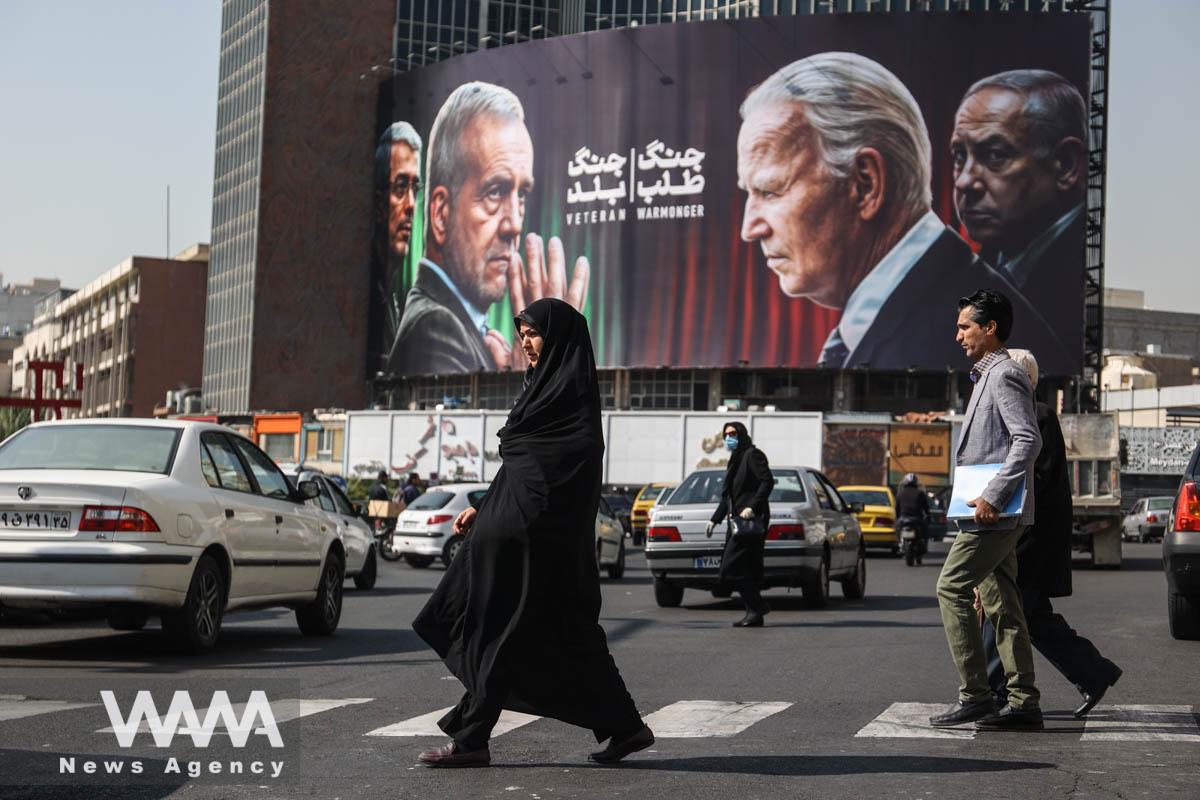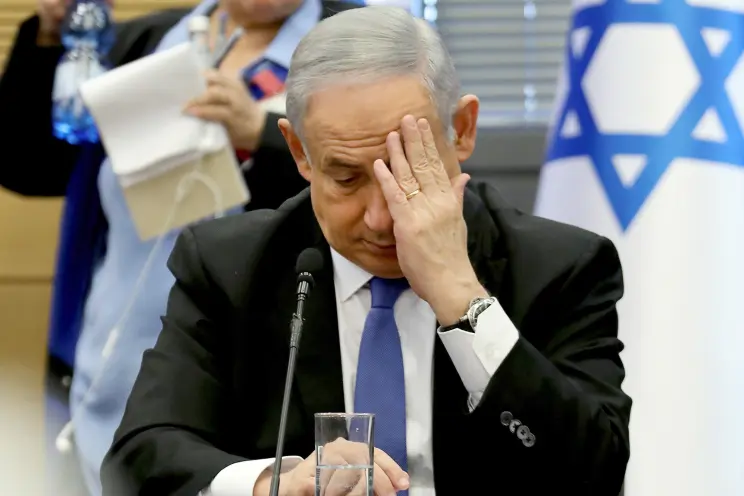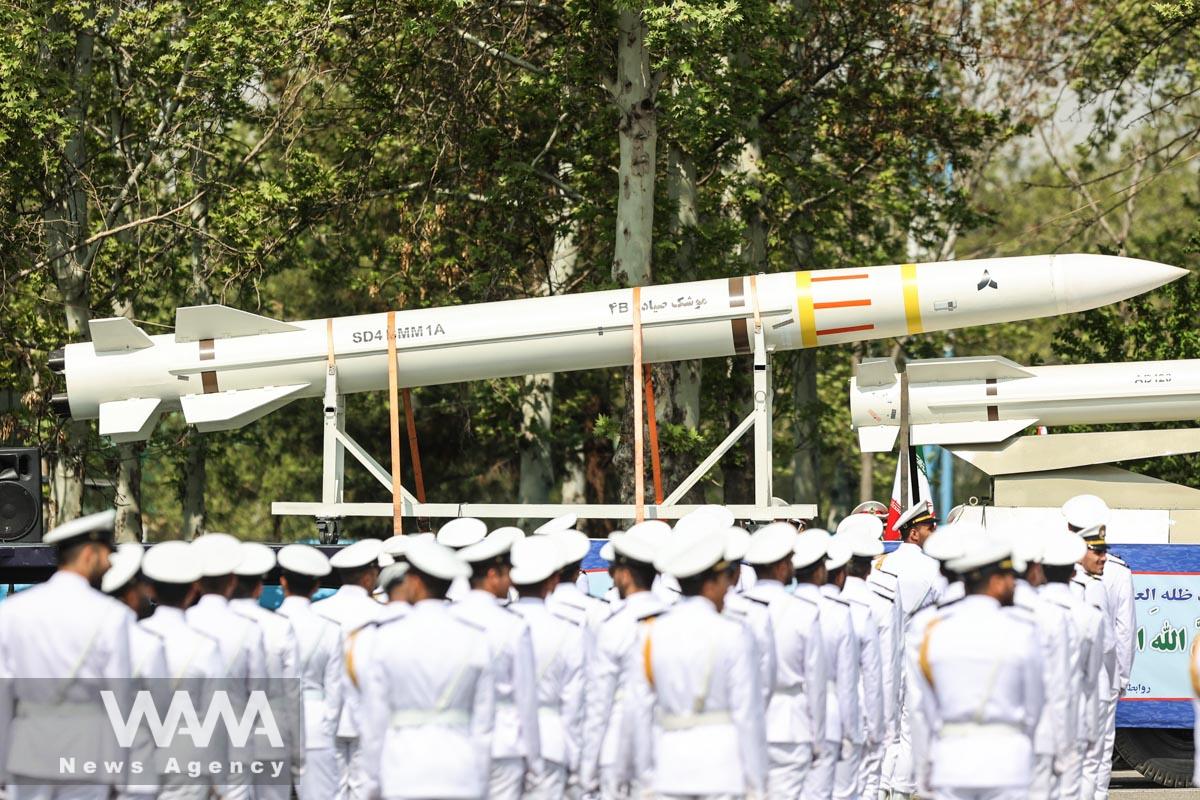Israel’s Miscalculations: Why Tel Aviv’s Perceptions of Iran Are Flawed
WANA (Oct 30) – Recently Iran’s Supreme Leader, in a meeting with the families of security martyrs, responded to Israel’s recent attacks on Iran, stressing, “The Israeli regime is making serious miscalculations regarding Iran, and these mistakes need correction.” He added, “They don’t understand Iran, its youth, or the nation’s strength and resolve. We must make them realize this.”
Recent analyses have highlighted Israel’s miscalculations about Iran, yet the specific details of these errors remain in question: What exactly are the Israeli regime’s calculations regarding Iran and the region, why are they flawed, and how can Iran leverage these mistakes to serve its national interests?

Iranians walk next to an anti-U.S. and Israeli billboard with pictures of Iranian president Masoud Pezeshkian and Iranian Armed Forces Chief of Staff, Major General Mohammad Bagheri and U.S. President Joe Biden and Israel’s Prime Minister Benjamin Netanyahu, on a street in Tehran, Iran, October 27, 2024. Majid Asgaripour/WANA (West Asia News Agency)
Does Iran Avoid Direct Confrontation with Israel?
Israel mistakenly believes that Iran is afraid of direct military confrontation and avoids direct responses. Numerous factors have fostered this incorrect assumption among Israelis, as they perceive that public opinion in Iran would oppose such tensions and that dissatisfaction with the Islamic Republic would aid Israeli psychological and military operations against Iran.
This perception stems largely from Israel’s connections with Iranian opposition groups and media outlets abroad, which, in pursuit of regime-change projects, often exaggerate their influence and the impact of their activities within Iran. This was the same miscalculation that led Israel to believe that the Islamic Republic would collapse under the 2022 protests or the November 2019 unrest.
The lack of public reaction to Israel’s military operations within Iran and the Iranian people’s unity with their military forces in defense of the nation have exposed Israel’s severe miscalculations.
History has shown that, while Iranians may have internal differences, they remain united in defending the nation’s sovereignty. This same miscalculation led Israeli officials to record videos suggesting that an Israeli attack on Iran would trigger regime change. Yet even opponents of the Islamic Republic abroad criticized this message, emphasizing that, while they may oppose the regime, they do not support foreign attacks on their homeland.
Iran’s Defense Capabilities
Another major misjudgment is Israel’s assessment of Iran’s military and defensive capabilities. Recent events have demonstrated that Iran’s advanced defense systems are highly capable of repelling direct attacks, showcasing the country’s resilience and ability to leverage its defensive power effectively.
Iran’s Reaction to Attacks on Its Allies
Israel’s assumption that Iran would remain passive in response to attacks on its regional allies has also contributed to this miscalculation. However, operations like “Promise Fulfilled 2” and responses to high-profile assassinations in the region illustrate Iran’s commitment to supporting its allies directly, bolstered by widespread internal support.

Israel Trembles Like Netanyahu’s Shaking Hands
WANA (Oct 02) – After Iran’s missile attack on Israel, named “The True Promise 2,” Netanyahu released a video that seemed to reveal more than just an ordinary speech. The video, lasting about four minutes, clearly displayed signs of psychological distress and a lack of focus. His behavior and gestures indicated mental pressure and a […]
Israel’s Perception of Iran and U.S. Policy
Israel presumes that Iran, mindful of regional repercussions and their impact on U.S. elections, might avoid escalating tensions. Yet recent developments reveal that Iran is ready to challenge this misjudgment and adapt its strategies accordingly.
The “Promise Fulfilled 2” operation demonstrated Iran’s steadfast commitment to its allies, even amid American negotiation offers. This response undermines Israel’s prior assumptions about Iran’s reluctance to react or willingness to negotiate.
Claims of Iranian Missile Vulnerability
Western media, citing Israeli sources, claimed that recent attacks had impaired Iran’s missile capabilities, particularly in solid-fuel systems. However, analysts indicate that Iran’s extensive missile program remains robust, with capabilities not limited to surface-level infrastructures. These Israeli claims appear intended to overstate their military successes for an international audience.

An Iranian missile is seen during the National Army Day parade ceremony in Tehran, Iran, April 17, 2024. Majid Asgaripour/WANA (West Asia News Agency)
Israelis seem to have fallen for their own propaganda, as illustrated by a widely circulated photo of Israeli military officers viewing footage of a three-year-old fire incident in Tehran, misleadingly framed as the result of a recent Israeli operation.
Iran’s Response and Escalation Levels
A crucial element of Israel’s miscalculation lies in its expectations regarding Iran’s response levels to attacks. Israel presumes that Iran’s responses will remain measured and proportional. However, Iran’s recent operations, including “Promise Fulfilled 1” and “Promise Fulfilled 2,” indicate its capability to escalate tensions to unexpected levels, catching the adversary off guard.
The failure of Israeli defense systems to intercept Iranian missiles in these operations exemplifies Iran’s asymmetric response strategy. Predictions suggest that Iran could intensify its attacks in future operations, targeting strategic and critical Israeli assets.

Iran’s Potential Response to Israeli Attacks
WANA (Oct 23) – Iran has considered various scenarios in case of an Israeli attack. Officials in Tehran have repeatedly warned of a “swift and harsh” response. Some have outlined Iran’s potential reactions as follows: 1. Striking designated targets in Israel, especially critical infrastructure, with full force. 2. If the U.S. intervenes […]
Managing Tensions and Iran’s Superiority in Conflict Levels
Ultimately, Iran appears focused on establishing its strategic advantage in managing tensions and leveraging its geographic position as a deterrent. Due to geographical constraints and limited access, Israel faces significant challenges in responding to potential Iranian attacks, granting Iran a pivotal role in dictating conflict levels and managing tensions. Should hostilities escalate, Israel’s capacity and resources for a proportional response are limited, a reality that will likely influence Iran’s future strategies to alter Israel’s calculations.
It seems that the key to reshaping the Israeli regime’s understanding of Iran’s strength is proving Iran’s superiority in direct confrontation with Israel.
To communicate Iran’s power to the Israeli regime effectively, an impactful military response to Saturday’s aggression could serve as a necessary shock. This shock would lay the groundwork for recalibrating Israel’s perspective on Iran’s capabilities and the broader resistance front, prompting Israel to reassess its miscalculations.

Enemy’s Misstep: Iran Ready for Precision Strike
WANA (Oct 27) – Iran’s Supreme Leader, Ayatollah Khamenei, responded today to Israel’s October 26 attack on Iran. He challenged the Israelis’ attempt to exaggerate their actions, and his remarks carried key messages: on the one hand, demonstrating Iran’s strategic acumen, and on the other, warning Israel and its allies. Analyzing his speech reveals four […]














